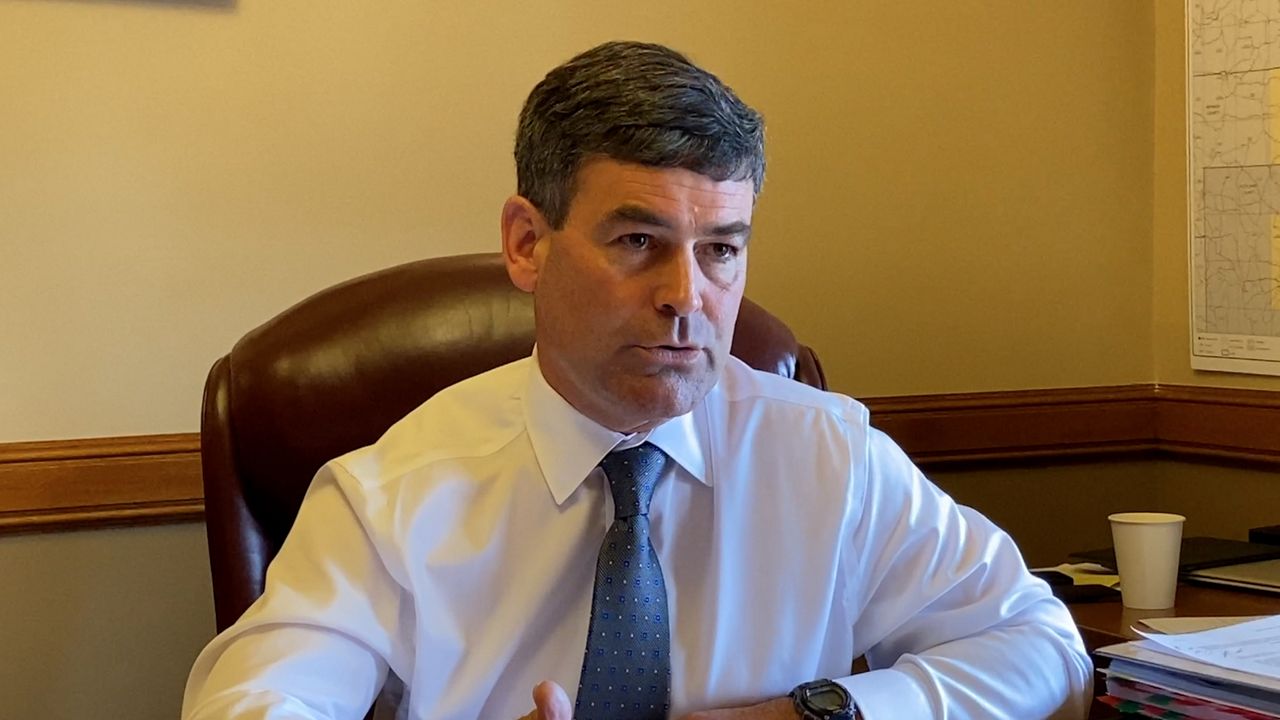MADISON, Wis. — A plan by Wisconsin Republicans to change the way the state provides funding to local governments to help pay for services, known as shared revenue, has been drafted as a bill with details on paper.
A draft of the 133-page legislation released Tuesday provides a better idea of the so-called “strings attached” to allow Milwaukee and Milwaukee County to raise its local sales tax.
While Republicans came up with the plan and solicited feedback from local governments, some Democrats are still concerned about the provisions Wisconsin’s largest city would face as a part of the deal.
“Anything that’s proposed for the City of Milwaukee will be like holding a loaded gun to our head,” State Sen. LaTonya Johnson, D-Milwaukee, said Tuesday before the bill was released. “It’s because of the Republicans that we are here, and so the public needs to understand it’s either we accept what’s on the table or we watch the City of Milwaukee go bankrupt.”
While some of the provisions would apply to communities across the state, including a ban on advisory referenda by cities and counties, as well as limits on the ability of local health officers to close businesses for more than two weeks, other items in the package are Milwaukee-specific. Among them, the transfer of management of police and fire departments from a commission to the chief of each department, requiring resource officers at Milwaukee Public Schools and a prohibition on using taxes to fund the city’s streetcar known as ‘The Hop.’
State Rep. Tony Kurtz, R-Wonewoc, who is leading the effort in the Assembly to reform shared revenue, said there were plenty of conversations to build as much support as possible from both sides of the aisle.
“As Assembly Republicans, one of the things that we did early on, in January, was the Speaker asked all those representatives that had any part of Milwaukee or surrounding counties; we have met with them at least a dozen times to say, ‘What is important to you in respect to, if we do decide to give Milwaukee the tools to help themselves, what do you need to see to support something like that,’” Kurtz explained.
Kurtz said the specific provisions for Milwaukee are a matter of accountability since the city and county would be given an exception to raise their local sales tax, which other municipalities are not allowed to do. The reason for the extra resource is that other cities and counties do not have the pension crisis that Milwaukee does.
“As a state and, at least for our caucus members, we do need reassurances that if we do give you these tools to help yourself, there are going to be conditions for it,” Kurtz added.

Earlier this week, Democrats were reluctant to comment on the proposal or its provisions before a draft of the bill was released, yet some lawmakers were more optimistic than others.
“I’m excited that the majority party is stepping up to the plate and understanding that this is an issue that needs to get solved,” State Rep. Evan Goyke, D-Milwaukee, said.
Republicans have some details to still workout between their caucuses in the Senate and Assembly. However, legislative leaders hope pass a bill ahead of the state budget.


